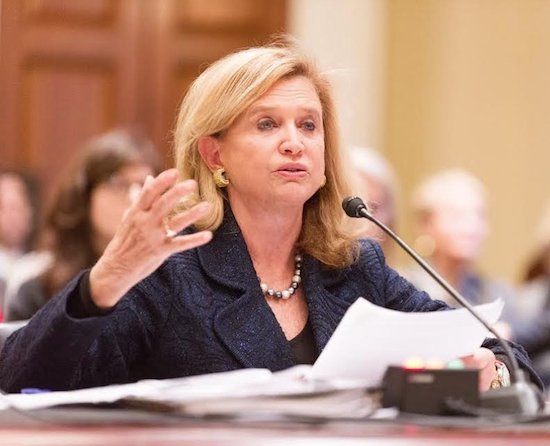Maloney hails passage of terrorism insurance bill

U.S. Rep. Carolyn Maloney says the insurance program is essential to New York’s economy. Photo courtesy Maloney’s office
After months of debate and nail-biting negotiations, the House of Representatives passed a bill on Wednesday to extend the Terrorism Risk Insurance Act (TRIA) for an additional six years, according to U.S. Rep. Carolyn Maloney, who hailed the program as being essential to New York’s economy.
Maloney (D-North Brooklyn-Manhattan) was a key player in the final negotiations that helped secure passage of the bill. The legislation was overwhelmingly approved in the house by a vote of 417-7.
The TRIA was set to expire at the end of the year.
